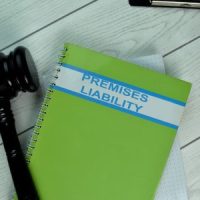Is My Landlord Responsible if I Get Hurt at My Rental Property?

Accidents and injuries can happen anywhere, including at your rental property. Under certain circumstances, when injuries arise, you may be eligible to recover monetary damages. Suppose you are a tenant in South Carolina and have suffered an injury at your rental property. In that case, you may be wondering if you can hold your landlord responsible for your injury and damages. Generally, whether or not you can file a legal claim against your landlord and seek compensation depends on the circumstances surrounding your injury and the specifics of the landlord/tenant agreement. If you suffered an injury in your rental property, you should speak to a qualified South Carolina premises liability attorney. An experienced attorney can help you understand your legal rights and options.
General Obligations of Landlords in South Carolina
Landlords have several duties and obligations towards their tenants. However, the extent and nature of these obligations may vary. Also, a landlord’s responsibilities may depend on the agreement between them and the tenant. However, landlords are generally responsible for keeping their property reasonably safe. Sometimes, they are also responsible for addressing any known hazards promptly, especially if they know about the danger and have time to address it.
Can You Sue Your Landlord After Suffering an Injury at Your Rental Property?
Whether or not you can sue your landlord after suffering an injury at your rental property depends on several factors. The first crucial factor is whether the injury resulted from the landlord’s negligence. To pursue a legal claim against your landlord, you need to show that they were negligent and that their negligence directly caused your accident and resulting injuries. If your injury occurred due to a dangerous condition that your landlord knew about or should have known about but failed to address, they may be liable for your injury and damages.
The following are some examples of situations where a landlord could potentially be liable;
- Failure to repair faulty wiring
- Inadequate security measures
- Failure to repair broken stairs
- Failure to repair structural defects
If your injury occurred due to your negligence, such as creating a dangerous condition in your house, your landlord may not be held responsible. As a tenant, you have a duty to exercise reasonable care and avoid actions that could put you or others in danger on the premises.
Second, whether or not your landlord is liable for your injury and damages may depend on the type of lease agreement in place. Usually, lease agreements include provisions outlining the landlord’s responsibilities for property maintenance and repairs. If, for example, your lease agreement states that your landlord is responsible for repairing structural defects, your landlord may be held liable if you suffered your injury due to their failure to repair structural defects.
Lastly, landlords in South Carolina are required to comply with certain regulations. Failure to comply with the basic safety requirements could expose them to liability.
If you suffered an injury in your rental property, contact a skilled premises liability attorney as soon as possible. A qualified premises liability attorney can examine your lease agreement, state and local regulations, and evidence surrounding your injury to determine your landlord’s liability.
Contact Our Charleston Premises Liability Lawyer
If you were injured on your rental property, contact our Charleston premises liability lawyer at the Gus Anastopoulo Law Firm for legal assistance.

